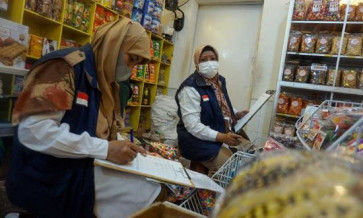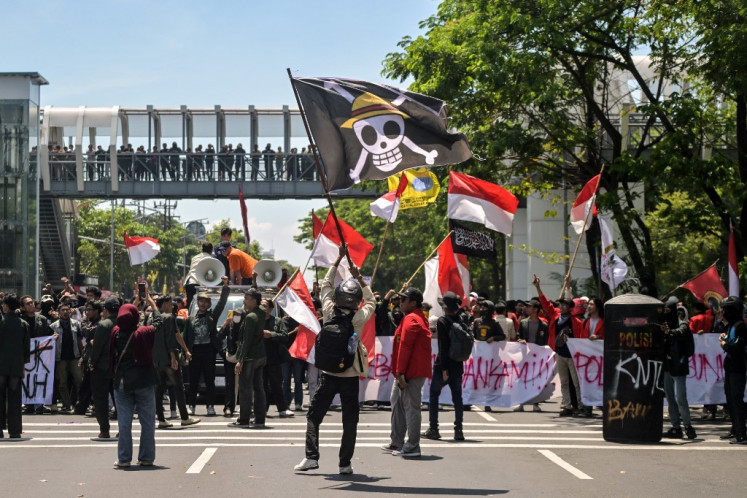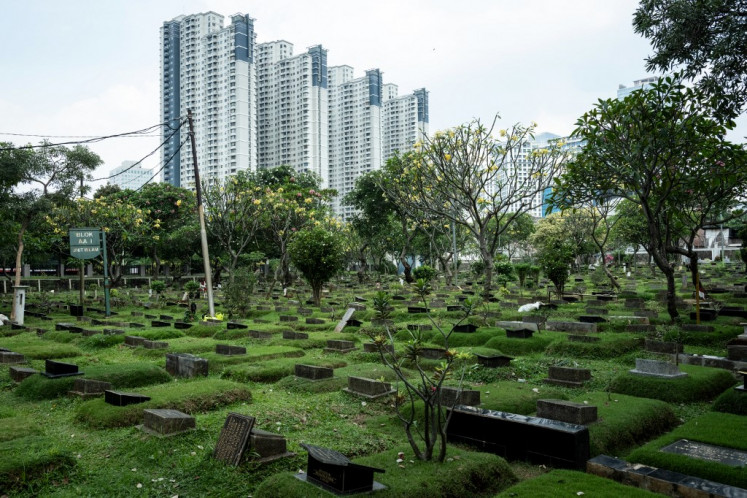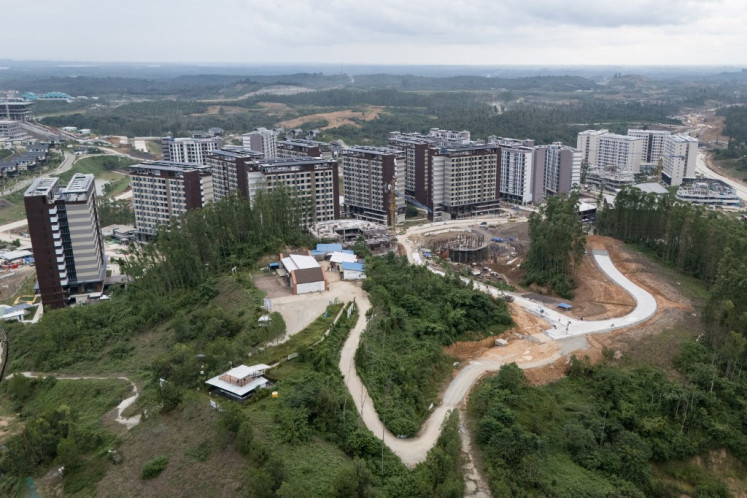Popular Reads
Top Results
Can't find what you're looking for?
View all search resultsPopular Reads
Top Results
Can't find what you're looking for?
View all search resultsArgument for palm oil development
Scenes of environmental activists dressed in orangutan suits storming the headquarters of multinational corporations might make great television and Internet news footage
Change text size
Gift Premium Articles
to Anyone
S
cenes of environmental activists dressed in orangutan suits storming the headquarters of multinational corporations might make great television and Internet news footage.
In fact, the strategies of groups such as Greenpeace, while well-meaning, only distort what’s really happening on the ground of palm-oil producing nations, such as my homeland of Indonesia.
In the wake of the unsuccessful United Nations climate change conference in Copenhagen in December 2009, palm oil and the companies that produce or use it in their products have been subjected to a merciless and unfair international smear campaign. The goal has been to shame, cajole and intimidate multinational corporations into refusing to buy palm oil from Indonesia, which along with Malaysia produces around 85 percent of the world’s supply.
We fully support the rights of individuals and groups to express their views freely and undertake causes to help our planet and its people. But we cannot accept distortions, misrepresentations, and even flat-out lies by environmental groups in the course of their campaigns.
We also cannot stand by while starry-eyed international media organizations give carte blanche coverage to environmental groups, accepting everything they say without question.
Amid the distortions and flowery media coverage, we want to point out a fact that is curiously ignored by environmental groups: palm oil is environmentally friendly. Palm oil production uses far less land, has higher productivity and more efficient in producing oil compared with other vegetable oils.
In addition, we categorically reject claims by Greenpeace activists in Indonesia, who are Indonesian themselves, that they “aren’t convinced” palm oil plantations are a major alleviator of poverty. They know full well that palm oil has brought millions of people out of poverty, ensures the sustained livelihoods for more than 17 million workers and their families, and has brought roads, bridges, and electricity to deep rural areas of Sumatra and Kalimantan.
However, we don’t want to trade barbs with environmental groups because it only takes attention away from the good things going on within Indonesia’s palm oil sector. Our industry has transformed from careless slash-and-burn land clearing and environmental degradation to conscientious sustainable development. Indonesia has 40 members in the Roundtable on Sustainable Palm Oil, known as RSPO. Six of these companies have already been internationally certified as sustainable producers, while 16 others are awaiting approval.
In 2011, the Indonesian government will launch the Indonesian Sustainable Palm Oil system, which will make it mandatory for Indonesian producers to adopt criteria on sustainable farming, environmental protection, and social responsibility toward local communities.
One of the other claims within Indonesia’s the palm oil debate is that it’s the leading cause of deforestation in my country. This isn’t so. Indonesia has some 133 million hectares of total forests and palm oil plantations account for only 7.5 million hectares.
Under my country’s forestry law, 52 million hectares are defined as conservation forests and protected forests and are strictly off limits, while 81 million hectares are defined as production forest and production conversion forests.
These latter categories are legally open for economic use, and palm oil is planted in production conversion forests.
So why are internationally-funded environmental groups relentlessly pushing for a moratorium on expanding palm oil plantations in Indonesia? Is it because palm oil is outselling other vegetable oils including rapeseed, sunflower and soybean, which are produced commercially in Europe and the United States? Is this about environmental protection or trade protectionism?
Indonesian President Susilo Bambang Yudhoyono was one of the world’s first leaders to public commit to greenhouse gas reduction targets, and is a firm supporter of a binding international treaty to reverse climate change. But Yudhoyono’s government also has a pro-poor and pro-job agenda to create jobs and raise living standards in rural parts of the country.
Palm oil is a key part of the strategy to help Indonesians, around 100 million of whom live on US$2 a day or less. Developed nations, given their own records of environmental destruction, are in no position to tell us whether or not we can touch our natural resources. Instead, they should help ensure that what we are doing is sustainable. For example, Indonesia recently signed a $1 billion agreement with Norway to fight carbon emissions, and will put in place a two-year moratorium on clearing natural forests for commercial use. Only by working together can we both reduce carbon emissions and poverty in developing nations such as Indonesia.
The spread of democracy and the rise of powerful tools such as the Internet have given us an unprecedented ability to exercise our right to free speech and to access new ideas. We in Indonesia’s palm oil industry only ask that our views are both heard and respected, not belittled through lies and scare campaigns.
Fadhil Hasan is Executive Director of the Association of Indonesian Palm Oil Producers.










